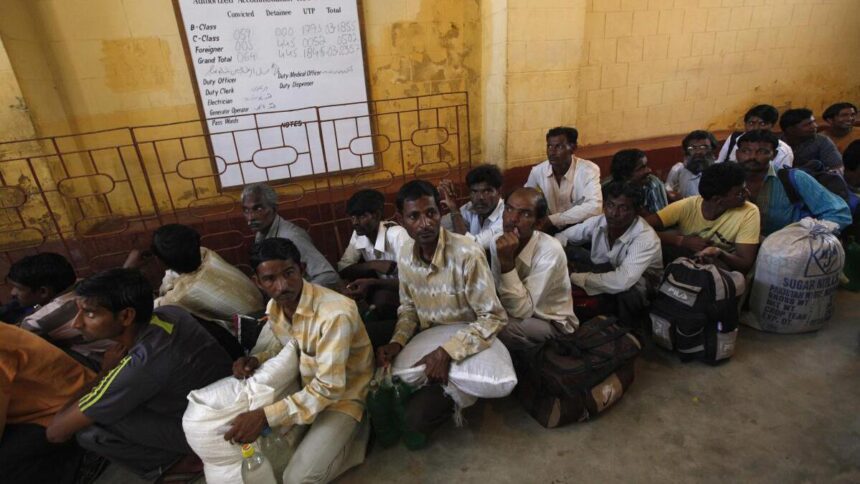About a week ago, a Qatar court commuted the death sentences of eight former Indian Navy personnel, arrested in August 2022 on espionage charges while working for a Doha-based company. This case highlights the broader issue of Indians imprisoned abroad and the measures taken by the Indian government to aid them in their legal struggles.
Cases of Indian prisoners overseas, such as the one in Qatar, are uncommon when details of the charges remain undisclosed to the public. In countries like Canada and the United Kingdom, strict privacy laws prevent the public disclosure of arrest details. Nevertheless, information about many arrests of Indians abroad is publicly available. A significant number involve fishermen who unintentionally cross international maritime boundaries. For example, in December 2022, over 50 fishermen from Tamil Nadu and Puducherry were detained by the Sri Lankan Navy. According to recent data, between 2020 and 2022, 2,612 Indian fishermen were imprisoned across ten countries: Iran (27), Sri Lanka (501), the UAE (5), Bangladesh (309), Bahrain (12), Myanmar (19), Pakistan (1,060), Qatar (54), Saudi Arabia (564), and Seychelles (61) for such violations. Many were subsequently repatriated.
Recent statistics reveal around 9,500 Indians are incarcerated in prisons across 89 nations. Notably, a significant portion of these prisoners is located in West Asia, with Saudi Arabia (2,200), the UAE (2,143), Qatar (752), Kuwait (410), and Bahrain (310) housing the majority. Nepal is the only other country among the top six with over 1,200 Indian prisoners. Other countries such as Malaysia, Pakistan, the UK, China, and the United States also house considerable numbers of Indian detainees.
The primary reason for arrests mainly involves crossing maritime boundaries, but a notable number of Indians have also been apprehended for offenses related to murder, drugs, and sexual crimes. Additional reasons include human trafficking, smuggling, forgery, and fraud.
The State-wise distribution of these prisoners is somewhat unclear, as data from many West Asian countries isn’t available. However, the states from which most prisoners originate include Punjab, West Bengal, Tamil Nadu, Gujarat, and Manipur. Certain countries show a concentration of prisoners from specific states; for instance, many Indian detainees in the US are from Punjab and Gujarat, while a large number in the Philippines hail from Punjab. Most prisoners in Singapore, Sri Lanka, and the Maldives originate from Tamil Nadu, whereas many in Bangladesh, Bhutan, and China are from West Bengal, and a majority of those in Myanmar are from Manipur.
India has entered into an Agreement on the Transfer of Sentenced Persons with 31 countries, including Qatar, allowing Indians held abroad to serve the remainder of their sentences in India, and vice versa. From 2006 to January 2022, 86 prisoners were transferred under this agreement.
In regions with large Indian populations, Indian Missions maintain a panel of lawyers, often offering their services at no cost. Additionally, an Indian Community Welfare Fund has been established within these missions to assist Indian nationals facing imprisonment or other crises.
Source: Lok Sabha and Rajya Sabha answers










